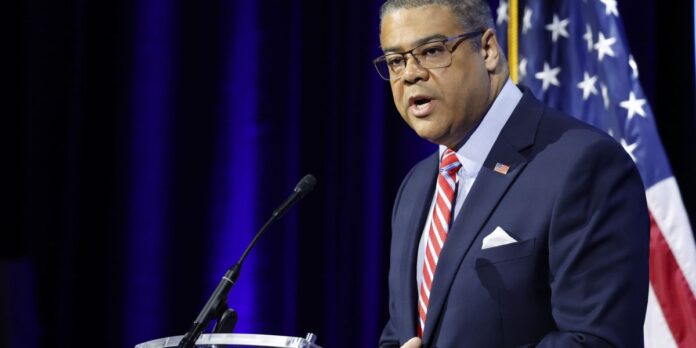
In recent years, Black-owned businesses have grown at the fastest pace in over 30 years, marking a pivotal moment in the journey to economic equity. And while the recent surge in Black-owned businesses is a testament to the resilience and innovation of Black entrepreneurs, common-sense policy and empowering resources are needed to help them thrive.
This economic renaissance is deeply rooted in our people’s spirit. In the Black community, there is an inherent excitement about entrepreneurship and creating something of your own. At the beginning of the pandemic, Black-owned businesses were closing twice as fast as other businesses. However, they remarkably bounced back even faster, opening 28% more businesses than pre-pandemic.
Black-owned businesses in the U.S. are major contributors to the economy, generating $206 billion in annual revenue and supporting 3.56 million U.S. jobs. Many of these businesses are federal contractors and many more are in a good position to become contractors. A recent Reimagine Main Street survey revealed that diverse-owned small businesses have significant capacity for contracting with one in three (33%) respondents generating at least $1 million in annual revenue and almost half (48%) generating at least 50% of their revenue from contracting. Our success is a catalyst for change, driving economic growth and fostering a more inclusive business environment. If we were to close the racial wealth gap by 2028, we could add $1 trillion to the U.S. economy. By supporting Black-owned businesses, we’re investing in a more prosperous and equitable future for all.
While the economic contributions of Black-owned businesses are significant, it’s important to recognize that these achievements have not come easily. Black entrepreneurs apply for business loans at a higher rate, yet we are receiving funding at a much lower rate compared to white entrepreneurs. Studies show that Black entrepreneurs are three times more likely than white entrepreneurs to report that access to financial capital negatively impacts their profits.
The path to success for Black entrepreneurs is often paired with challenges and systemic barriers. I had very limited access to capital at the beginning of my entrepreneurial journey 18 years ago. Even though I did everything by the book and had strong business numbers, I continued receiving rejections. Despite our substantial contributions, our businesses often remain underappreciated and face hurdles that are not as prevalent in other communities.
Black businesses thrive when we are supported by legislation designed to help us succeed. Policies such as the Bipartisan Infrastructure Act don’t just fund projects to repair our country’s crumbling roads and bridges but also include provisions to help Black businesses. The Minority Business Development Agency is now permanent within the federal government which has been pivotal, providing technical assistance and capital for Black-owned businesses.
The expanded Child Tax Credit included in the American Rescue Plan was a game-changer for Black small business owners and their employees. Child poverty rates for Black children dropped by 17.1%. The credit helped restart our workforce as parents were able to pay for reliable childcare so they could have a stable schedule at work. It also gave consumers more money to spend at local small businesses. It undoubtedly gave some Black entrepreneurs the financial stability required to launch a business. It’s part of the reason why I support the legislation that brings back the Child Tax Credit for lower-income families.
However, it will take more than policy to ensure success for Black business owners. Mentorship within our community is essential. I would not be where I am without it. My journey began by working in a print shop in my community at the age of 13. Mentored and inspired by my Black boss’ work ethic, I started my own business at 14 making flyers for friends, which evolved into my current marketing firm years later. Learning from someone who looked like me helped mold me into the entrepreneur I am today.
Consumers should also play a role in intentionally seeking out and supporting Black-owned businesses, whether it’s for everyday purchases or larger investments–not just during Black History Month or on Juneteenth but all year long. Major corporations can create or participate in programs that provide financial assistance and resources tailored to the needs of Black entrepreneurs.
As we reflect on the achievements of Black entrepreneurs, we must also look to the future. The Black business boom is evidence of what we can achieve with the right resources and support in place. It’s a reminder of the ongoing need for policies and systems that foster an inclusive and thriving business environment for Black entrepreneurs.
By supporting Black entrepreneurship, we are investing in a future that is rich in diversity, innovation, and economic prosperity for all.
Shaundell Newsome is the visionary and founder of Sumnu Marketing, a co-chair of Small Business for America’s Future, and a Vegas Chamber trustee. He was Nevada’s 2023 Statewide Entrepreneurial Spirit Awardee of the Year, the SBA Small Business Champion of the Year in 2008 and he won SBA Nevada Family Owned Business of the Year in 2015.
More must-read commentary published by Fortune:
The opinions expressed in Fortune.com commentary pieces are solely the views of their authors and do not necessarily reflect the opinions and beliefs of Fortune.


